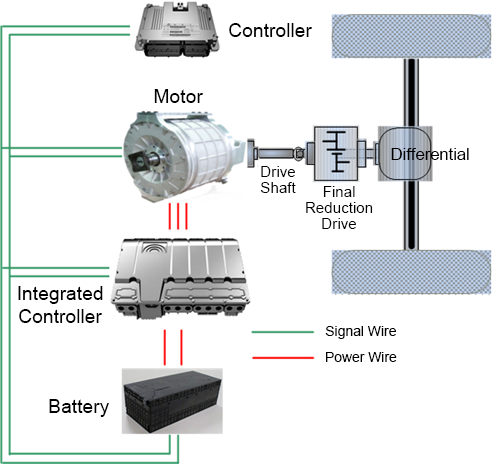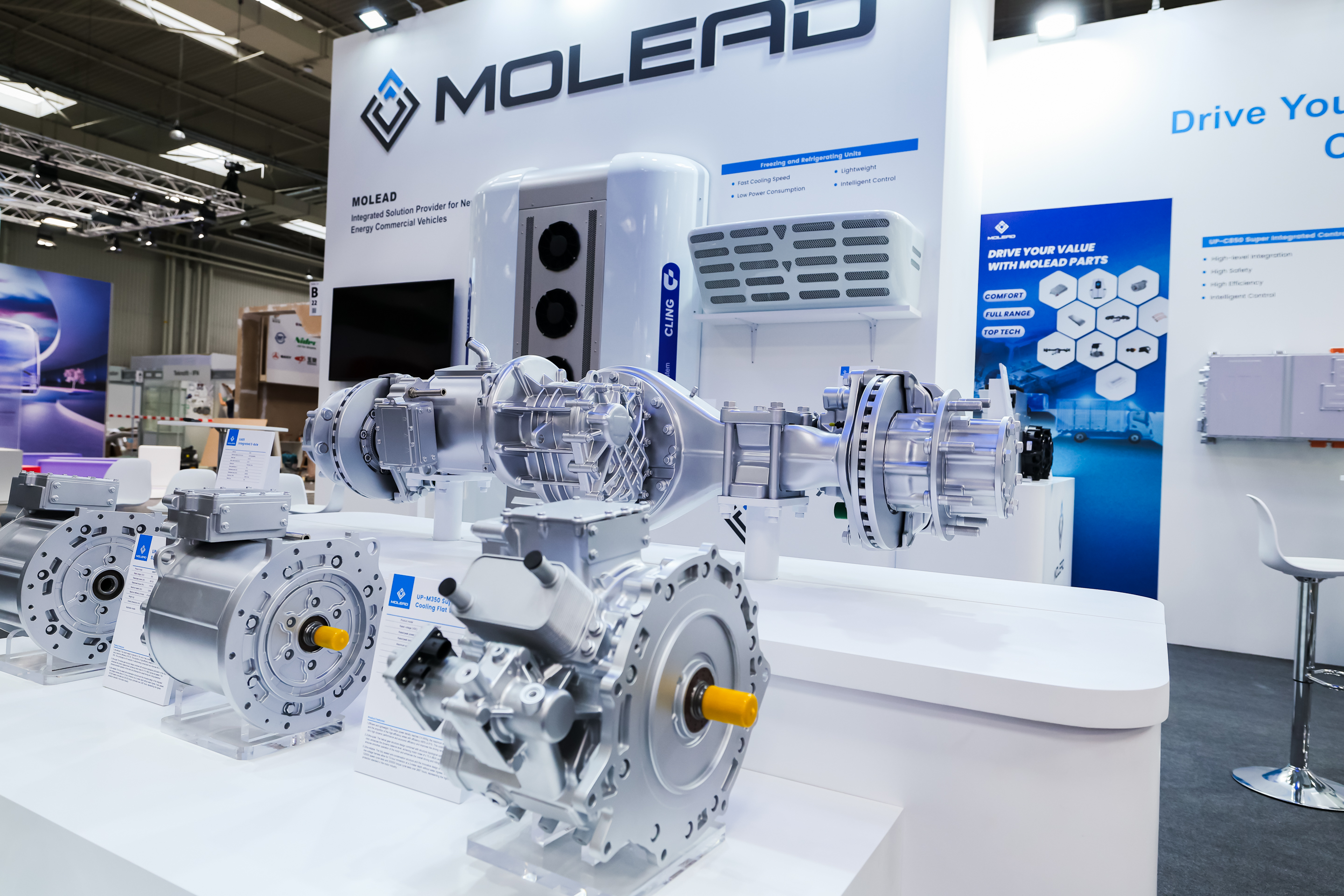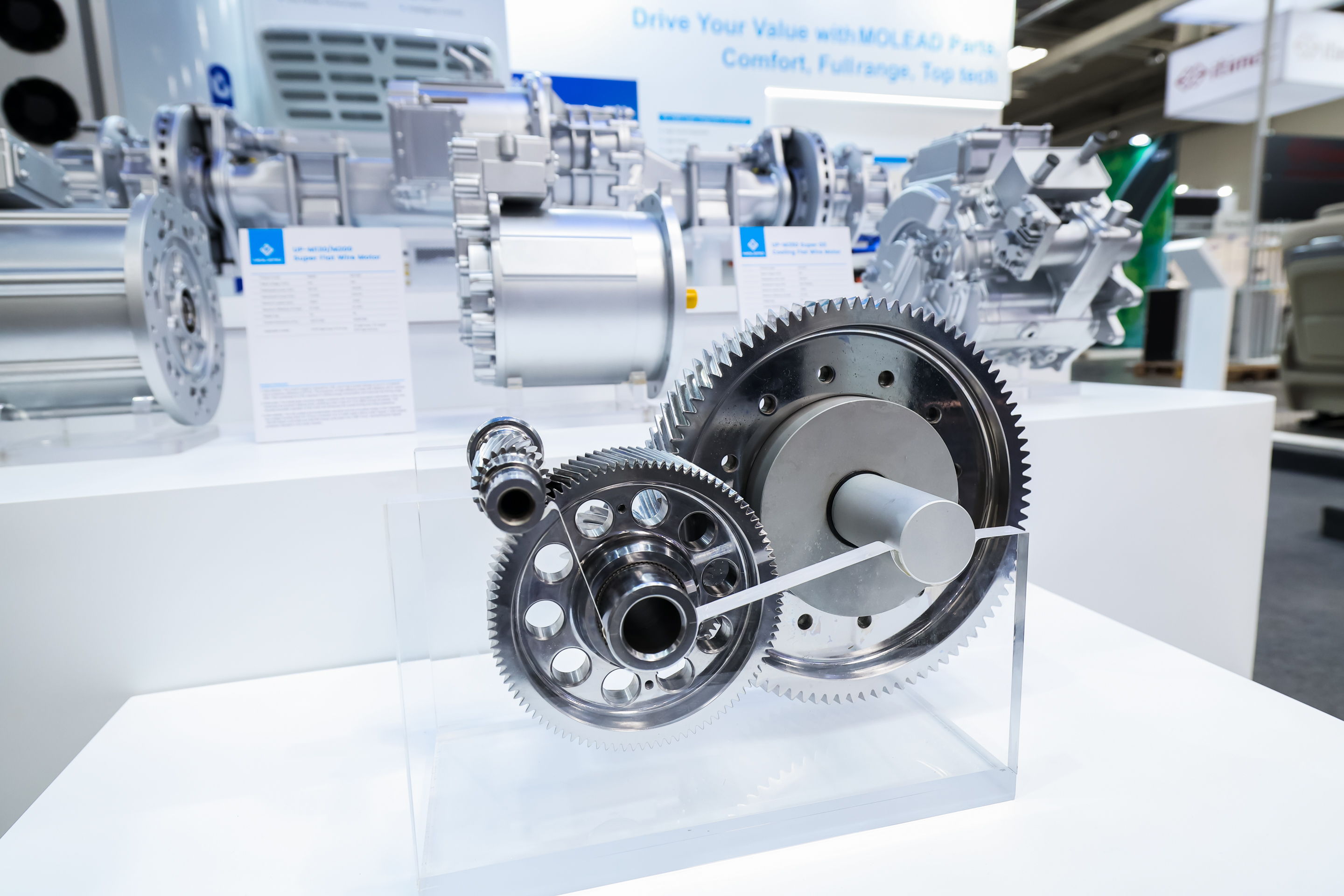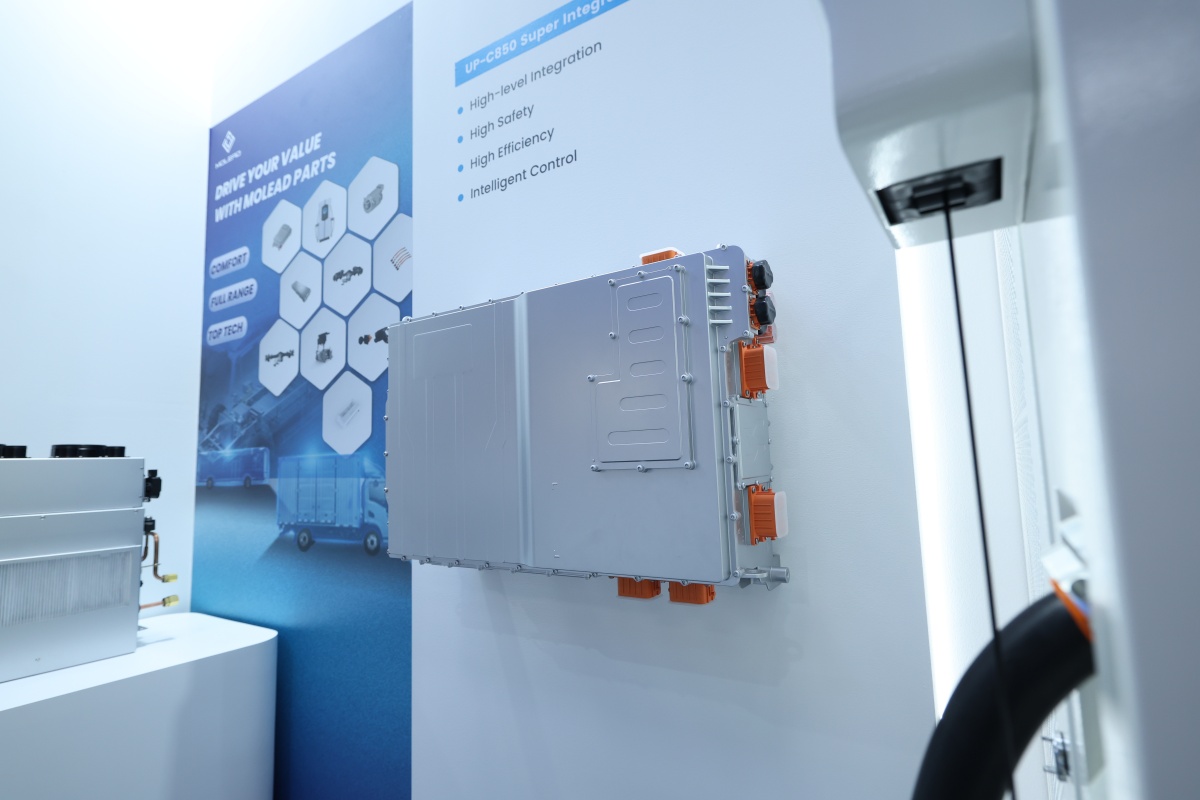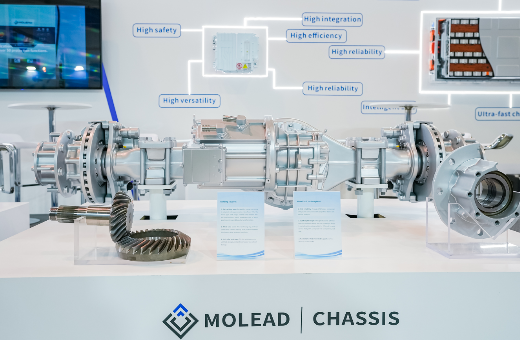Introduction to the Electric Drive System for New Energy Commercial Vehicles
The electric drive system for new energy commercial vehicles consists of a drive motor and controller, as well as mechanical transmission devices (reducer/gearbox, drive shaft, differential, axle shafts, etc.).
The drive motor: When the vehicle is moving, it converts electrical energy into mechanical energy to power the vehicle. During braking, it converts mechanical energy into electrical energy, recovering braking energy under vehicle control, providing auxiliary braking and an electric retarding function.
The reducer/gearbox (AMT): It matches speed and transmits torque.
The differential: Consists of planetary gears, a planetary carrier (differential case), axle shaft gears, and other components. It adjusts the speed difference between the left and right wheels, allowing them to roll at different speeds when turning or driving on uneven roads.
The controller: It receives output signals from the accelerator pedal, brake pedal, and PDRN control handle to control the rotation of the drive motor.
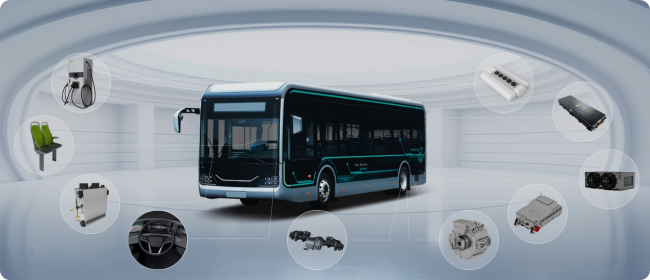
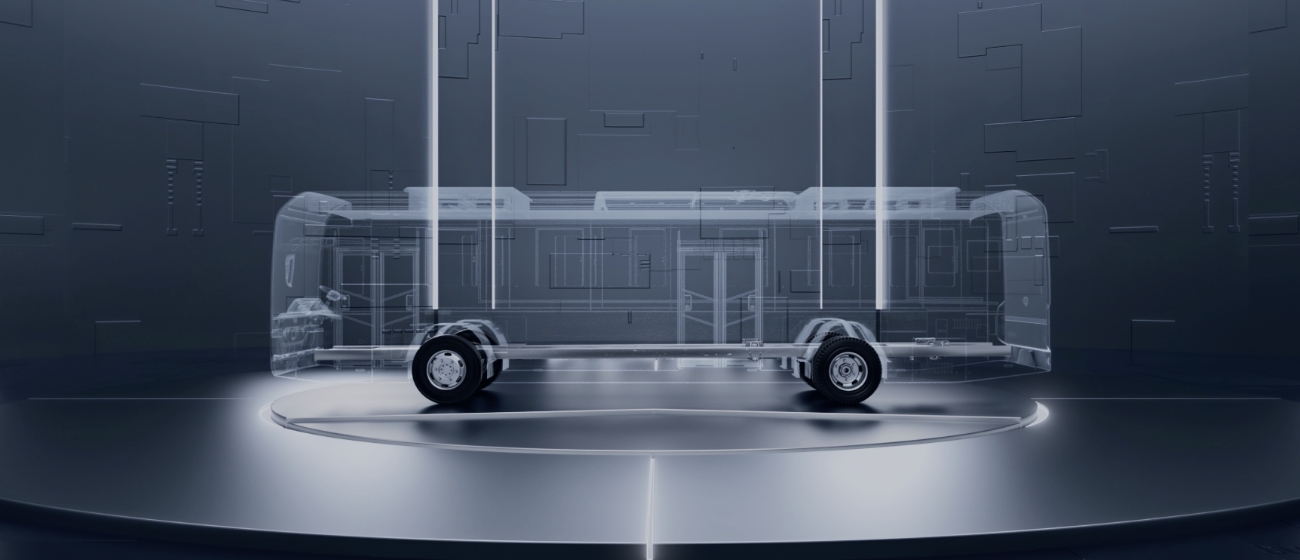
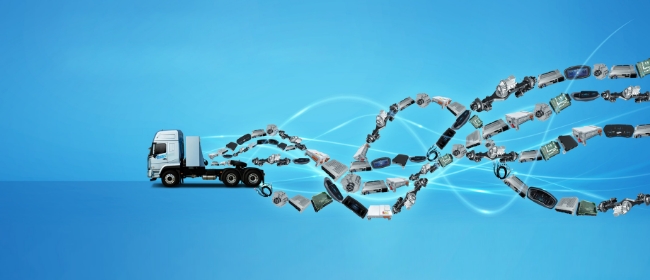

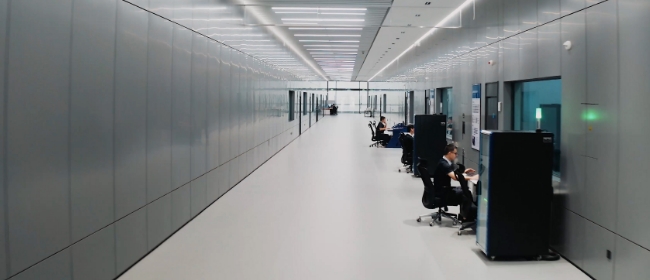

 China
China English
English French
French Spanish
Spanish Russian
Russian
